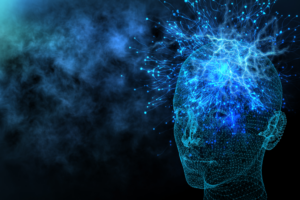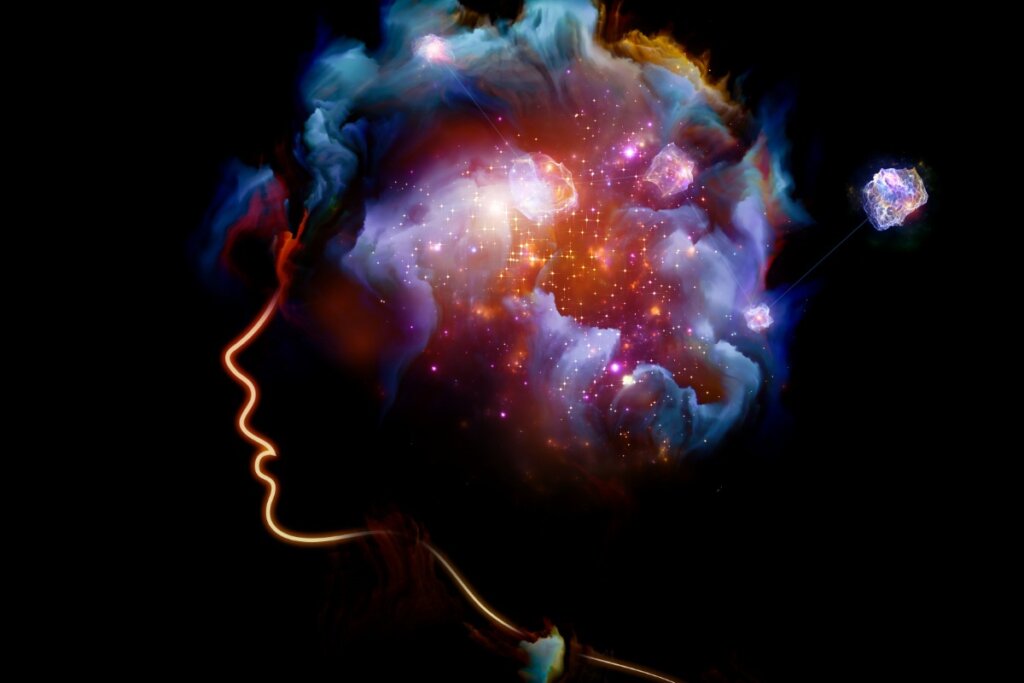Extrasensory Perception: Fact or Fiction?


Written and verified by the psychologist Ebiezer López
Throughout the course of history, there’ve been many people with supposed special psychic abilities, such as telepathy or clairvoyance. These types of abilities are usually classified as extrasensory perception. Some claim that developing this type of ‘gift’ is possible, while others completely dismiss the idea.
Although it’s a subject that’s often linked to the ‘magical’ or ‘mystical’, serious attempts have been made to investigate it scientifically. The findings in this regard are interesting. However, they tend to point to the idea that there exists a considerable distance between what appears to happen and what actually happens.
Extrasensory perception
The term extrasensory perception (ESP) refers to a set of alleged superhuman psychological abilities. They’re called extrasensory because, according to their description, they don’t depend on the usual human senses, such as sight or hearing. In fact, this type of perception is associated with another type of sensory ability about which not much is known.
From a historical perspective, ESP is a common theme within human cultures. Indeed, ancient societies used to rely on the talents of shamans or healers who possessed supposedly abnormal abilities. Usually, their power was related to the presence of a deity, spirit, or demon.
However, it wasn’t until the 20th century that the phenomenon began to be investigated in the field of science. It was Joseph Banks Rhine, a botanist from the United States, who began to conduct experiments on extrasensory perception. He’s considered to be one of the leading figures in the rise of parapsychology as a field of research.

Types of extrasensory phenomena
Rhine developed research in order to verify different extrasensory phenomena. As a result of his studies, it was possible for researchers to deepen their understanding of the following concepts.
Telepathy
Telepathy is a supposed psychic ability that allows its possessor to do different things. For instance, they’re supposedly able to read the thoughts and emotions of another without them being expressed. Likewise, they’re apparently able to convey their own ideas into someone else’s mind without using any kind of language.
One of Rhine’s experiments to provide data in favor of telepathy was based on Zener cards. These are sets of cards with pictures of figures on them. The experimenter shuffles and then chooses a card. The idea is that they then try to guess the card using their telepathic ability.
Clairvoyance
Clairvoyance is the supposed ability to possess visions about people or events. For example, a clairvoyant could guess the location of someone who’s disappeared using their ability.
A famous clairvoyance experiment was developed by Upton Sinclair, an American writer. Sinclair claimed that his wife was capable of accurately reproducing the drawings he made, without seeing them. It was as if she could visualize the figures from a distance through some kind of remote viewing.
Mediums
Mediums are often frequent characters in horror movies due to their supposed ability to contact spirits or demons. Those who identify themselves as mediums claim to be able to hear or sense beings from other worlds. For that reason, it’s common for them to become involved in the investigation of paranormal phenomena such as ‘haunted’ houses.
One of the most famous mediums is Lorraine Warren, an American parapsychologist. She, together with her husband, has been in charge of investigating different cases of ‘supernatural’ activity. In fact, the popular movie, The Conjuring, is based on one of their cases.
Is it possible to develop extrasensory perception?
Those who defend the existence of extrasensory perception usually say that it’s an innate human capacity. In other words, we’re all born with these skills, but they remain dormant due to a lack of stimulation or practice. Following this logic, we could awaken our psychic gifts if we trained them.
There are certain techniques that tend to be recommended for this purpose. For instance, meditation or yoga. Mental visualization exercises, the use of crystals with ‘mystical’ properties, and other types of rituals are also included. However, is it really possible? Let’s see what the scientific evidence says.

Scientific evidence on extrasensory perception
The experiments that were conducted in the past to evaluate this type of perception were criticized at the time. For example, in the case of the Zener cards, there was talk of a statistical factor in which the probability of success by chance was considered. In much the same way, Sinclair’s experiments were questioned for their lack of scientific rigor.
On the other hand, many of the concepts on which ESP is based can’t be verified with experiments either. For instance, the existence of phenomena such as chakras or psychic energy is incompatible with what we know of human anatomy. Indeed, many of them are based on ancient religious texts with inaccurate descriptions of the human body.
In addition, the experimental evidence is contrary to the ideas of the theorists who defend ESP. Huang (2019) published an article in which he explains that extrasensory phenomena are most likely associated with false perceptions. According to the author, a false internal stimulation would be confused with an objective stimulus that’s detected through the senses. Similarly, Liu (2021) conducted a meta-analysis on telepathy studies. In his conclusions, he points out that, under experimental conditions, the effects of telepathy are almost null.
In the light of the foregoing evidence, although the hypotheses about extrasensory perception are interesting, there’s not currently enough scientific evidence to support them.
Throughout the course of history, there’ve been many people with supposed special psychic abilities, such as telepathy or clairvoyance. These types of abilities are usually classified as extrasensory perception. Some claim that developing this type of ‘gift’ is possible, while others completely dismiss the idea.
Although it’s a subject that’s often linked to the ‘magical’ or ‘mystical’, serious attempts have been made to investigate it scientifically. The findings in this regard are interesting. However, they tend to point to the idea that there exists a considerable distance between what appears to happen and what actually happens.
Extrasensory perception
The term extrasensory perception (ESP) refers to a set of alleged superhuman psychological abilities. They’re called extrasensory because, according to their description, they don’t depend on the usual human senses, such as sight or hearing. In fact, this type of perception is associated with another type of sensory ability about which not much is known.
From a historical perspective, ESP is a common theme within human cultures. Indeed, ancient societies used to rely on the talents of shamans or healers who possessed supposedly abnormal abilities. Usually, their power was related to the presence of a deity, spirit, or demon.
However, it wasn’t until the 20th century that the phenomenon began to be investigated in the field of science. It was Joseph Banks Rhine, a botanist from the United States, who began to conduct experiments on extrasensory perception. He’s considered to be one of the leading figures in the rise of parapsychology as a field of research.

Types of extrasensory phenomena
Rhine developed research in order to verify different extrasensory phenomena. As a result of his studies, it was possible for researchers to deepen their understanding of the following concepts.
Telepathy
Telepathy is a supposed psychic ability that allows its possessor to do different things. For instance, they’re supposedly able to read the thoughts and emotions of another without them being expressed. Likewise, they’re apparently able to convey their own ideas into someone else’s mind without using any kind of language.
One of Rhine’s experiments to provide data in favor of telepathy was based on Zener cards. These are sets of cards with pictures of figures on them. The experimenter shuffles and then chooses a card. The idea is that they then try to guess the card using their telepathic ability.
Clairvoyance
Clairvoyance is the supposed ability to possess visions about people or events. For example, a clairvoyant could guess the location of someone who’s disappeared using their ability.
A famous clairvoyance experiment was developed by Upton Sinclair, an American writer. Sinclair claimed that his wife was capable of accurately reproducing the drawings he made, without seeing them. It was as if she could visualize the figures from a distance through some kind of remote viewing.
Mediums
Mediums are often frequent characters in horror movies due to their supposed ability to contact spirits or demons. Those who identify themselves as mediums claim to be able to hear or sense beings from other worlds. For that reason, it’s common for them to become involved in the investigation of paranormal phenomena such as ‘haunted’ houses.
One of the most famous mediums is Lorraine Warren, an American parapsychologist. She, together with her husband, has been in charge of investigating different cases of ‘supernatural’ activity. In fact, the popular movie, The Conjuring, is based on one of their cases.
Is it possible to develop extrasensory perception?
Those who defend the existence of extrasensory perception usually say that it’s an innate human capacity. In other words, we’re all born with these skills, but they remain dormant due to a lack of stimulation or practice. Following this logic, we could awaken our psychic gifts if we trained them.
There are certain techniques that tend to be recommended for this purpose. For instance, meditation or yoga. Mental visualization exercises, the use of crystals with ‘mystical’ properties, and other types of rituals are also included. However, is it really possible? Let’s see what the scientific evidence says.

Scientific evidence on extrasensory perception
The experiments that were conducted in the past to evaluate this type of perception were criticized at the time. For example, in the case of the Zener cards, there was talk of a statistical factor in which the probability of success by chance was considered. In much the same way, Sinclair’s experiments were questioned for their lack of scientific rigor.
On the other hand, many of the concepts on which ESP is based can’t be verified with experiments either. For instance, the existence of phenomena such as chakras or psychic energy is incompatible with what we know of human anatomy. Indeed, many of them are based on ancient religious texts with inaccurate descriptions of the human body.
In addition, the experimental evidence is contrary to the ideas of the theorists who defend ESP. Huang (2019) published an article in which he explains that extrasensory phenomena are most likely associated with false perceptions. According to the author, a false internal stimulation would be confused with an objective stimulus that’s detected through the senses. Similarly, Liu (2021) conducted a meta-analysis on telepathy studies. In his conclusions, he points out that, under experimental conditions, the effects of telepathy are almost null.
In the light of the foregoing evidence, although the hypotheses about extrasensory perception are interesting, there’s not currently enough scientific evidence to support them.
All cited sources were thoroughly reviewed by our team to ensure their quality, reliability, currency, and validity. The bibliography of this article was considered reliable and of academic or scientific accuracy.
- Huang, W. (2019). A Psychological Perspective on Extrasensory Perception. In Biophysics and Neurophysiology of the Sixth Sense (pp. 107-110). Springer, Cham.
- Liu, Y. (2021, October). Detecting Telepathy: A Meta-analysis for Extrasensory Perception Experiments in Last 20 Years. In 2021 6th International Conference on Modern Management and Education Technology (MMET 2021) (pp. 428-432). Atlantis Press.
This text is provided for informational purposes only and does not replace consultation with a professional. If in doubt, consult your specialist.







